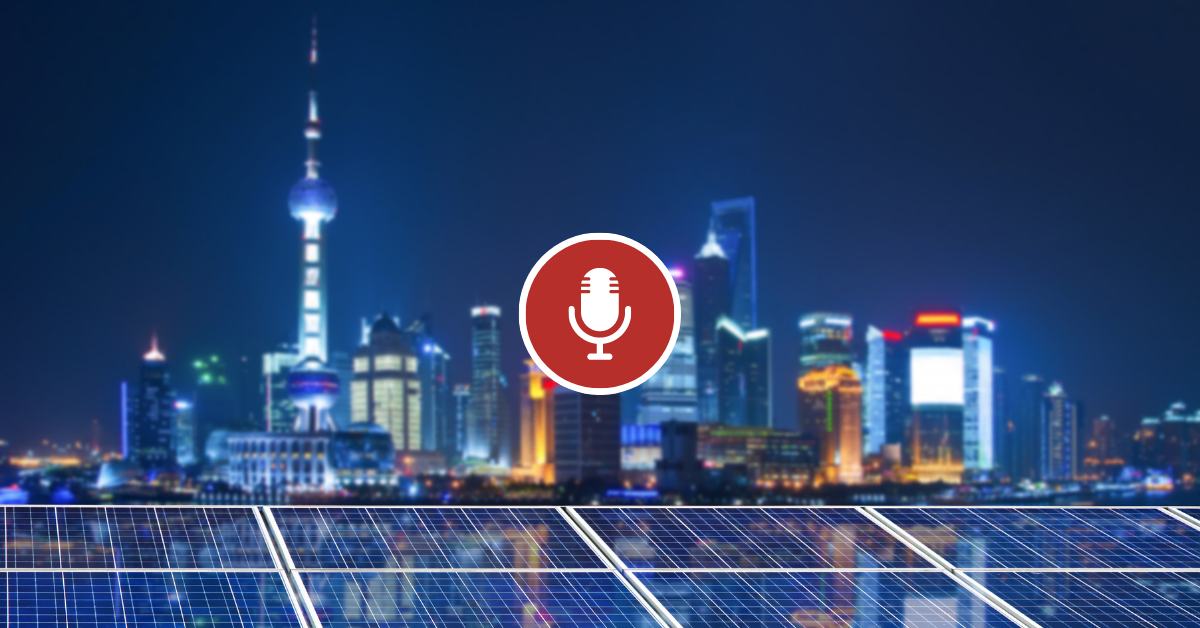Thursday, April 22, 2021 | 4:00 PM EDT - 5:15 PM EDT
Zoom webinar | Angel Hsu, Jonas Nahm, Alex Wang, Joanna Lewis
The United States and China jointly account for 40 percent of global greenhouse gas emissions, so avoiding the worst consequences of climate change will require collective action by the two countries. In the first program in a series on climate change and the environment, and coinciding with President Biden’s Leaders Summit on Climate, Professors Angel Hsu, Jonas Nahm, and Alex Wang will discuss the critical importance of U.S.-China climate cooperation at all levels of society, and offer practical proposals for policy action.
On April 22, 2021, the National Committee held a virtual program with Angel Hsu, Jonas Nahm, and Alex Wang to discuss the future of U.S.-China climate cooperation in a conversation moderated by China energy expert Joanna Lewis.
The program was held in partnership with the Penn Project on the Future of US-China Relations, which is sponsored by the University of Pennsylvania’s Center for the Study of Contemporary China.
Below are the five key takeaways from the program:
- Alex Wang: There is jockeying for the mantle of climate leadership. This can be a positive force, as it will create impetus within the political economy of each country to push for climate-related breakthroughs. In November 2020, when China announced its goal of zero carbon emissions by 2060, it was a way for China to command the agenda on climate change. It made a big step forward in global conversations and earned a lot of good will from the international community. President Biden’s Leaders Summit on Climate is a clear example of the United States now trying to assert its leadership.
- Jonas Nahm: The idea of competition as it relates to “winning” the clean energy race goes back a long way. The competition rhetoric has always served as a political tool to motivate domestic audiences to buy into these policies. In addition, we’ve had a lot of collaboration among firms, industries, and subnational actors, particularly regarding manufacturing and research and development between the United States and China. In this way, the two frameworks – competition and collaboration – are actually compatible: we can use the competition framework to make us work harder and to innovate, and we can use bilateral collaboration to actually fulfill zero-emissions and climate-related goals.
- Angel Hsu: The role of bottom-up actors to fill in emissions gaps is critical. In the 2014 agreement signed by China and the United States, over two dozen American and Chinese cities, states, and provinces committed to adopt the same timeline as China’s “Alliance of Peaking Pioneer Cities*” and to reach peak carbon emissions before 2030. If these sub-national actors actually achieve these targets, that could lead to an additional reduction of 50 million tons of carbon beyond the national governments’ targets. Thus, the roles of cities, industries, and private companies are critical to progress. Accountability needs to occur at the local level and all the way up the national government.
- Alex Wang: President Xi Jinping’s comments about coal at President Biden’s Leaders Summit on Climate were the first of their kind on a global stage. He committed China to strictly controlling the building of new coal-fired power plants, and to eventually phase down their use. Although this suggests there will be continued building and use of coal-fired power plants for at least the duration of the 14th and 15th Five-Year Plans (through 2030), these political signals are very important. It’s a start. However, there are still a lot of questions, such as, “Will China continue to use fossil fuels overseas?” There are still policies that protect coal, and that needs to change.
- Jonas Nahm: Throughout the recession [caused by the coronavirus pandemic] we’ve been spending huge amounts of money on economic recovery. This is going to continue: there will be more stimulus packages across all G20 countries and developing countries. Since the beginning of the pandemic, only six percent of fiscal spending for economic recovery has been going to activity that actually reduces emissions. There is a huge opportunity as we rebuild and recover for us to expand that. In preparation for the UN Climate Change Conference (COP26) in November 2021, as well as looking at the longer-term future, we should be considering how we are spending money in ways that are more deliberate on combatting climate change.
* In 2016, China’s Alliance of Pioneer Peaking Cities (APPC) announced that 23 cities and provinces had committed to peaking emissions by 2030
Speakers

Angel Hsu
Angel Hsu is an assistant professor in the public policy department and energy, environment and ecology program at the University of North Carolina, Chapel Hill. She is the founder and director of the data-driven EnviroPolicy Lab, an interdisciplinary research group that innovates and applies quantitative approaches to pressing environmental issues. Her research explores the intersection of science and policy and the use of data-driven approaches to environmental sustainability, particularly in climate change and energy, urbanization, and air quality. Focusing on China and the Global South, Dr. Hsu has provided expert testimony to the U.S.-China Economic Security and Review Commission and is a fellow of the National Committee’s Public Intellectuals Program. Dr. Hsu holds a bachelor’s degree in biology and political science from Wake Forest University, a master’s degree in environmental policy from the University of Cambridge, and a doctorate in environmental policy from Yale University.

Jonas Nahm
Jonas Nahm is an assistant professor of energy, resources, and environment at the Johns Hopkins School of Advanced International Studies (SAIS). His research interests focus on the intersection of economic and industrial policy, energy policy, and environmental politics. In addition to his work on renewable energy industries, Dr. Nahm has ongoing research projects on China’s role in greening the global auto sector and the subnational determinants of climate policies in China. Dr. Nahm was previously a postdoctoral fellow at the Watson Institute for International and Public Affairs at Brown University, and is a fellow of the National Committee’s Public Intellectuals Program. Dr. Nahm received his bachelor’s degree in social and political sciences from the University of Cambridge, his master’s degree in political science and Asia-Pacific studies from the University of Toronto, and his Ph.D. in political science from the Massachusetts Institute of Technology.

Alex Wang
Alex Wang is a professor of law at the University of California, Los Angeles, School of Law, and a leading expert on environmental law and the law and politics of China. His research focuses on the interaction of law and institutions in China and the United States. Prior to joining UCLA, Professor Wang was a senior attorney for the Natural Resources Defense Council (NRDC) based in Beijing, and the founding director of NRDC’s China Environmental Law & Governance Project. In this capacity, he worked with China’s government agencies, legal community, and environmental groups to improve environmental rule of law and strengthen the public’s role in environmental protection. Professor Wang received his bachelor’s degree in biology from Duke University and his law degree from New York University. He, too, is a fellow of the National Committee’s Public Intellectuals Program.
Moderator

Joanna Lewis
Joanna Lewis is Provost’s Distinguished Associate Professor of Energy and Environment and director of the Science, Technology and International Affairs Program at Georgetown University. She is also a faculty affiliate in the China Energy Group at the U.S. Department of Energy’s Lawrence Berkeley National Laboratory. Dr. Lewis is the author of Green Innovation in China, and was a lead author of the Intergovernmental Panel on Climate Change’s Fifth Assessment Report. She has worked for several governmental and non-governmental organizations, and was a visiting scholar at Tsinghua University, the Woodrow Wilson International Center for Scholars, and the East-West Center. Lewis holds master’s and doctoral degrees in energy and resources from the University of California, Berkeley, and a bachelor’s degree in environmental science and policy from Duke University. She is a fellow of the National Committee’s Public Intellectuals Program.

